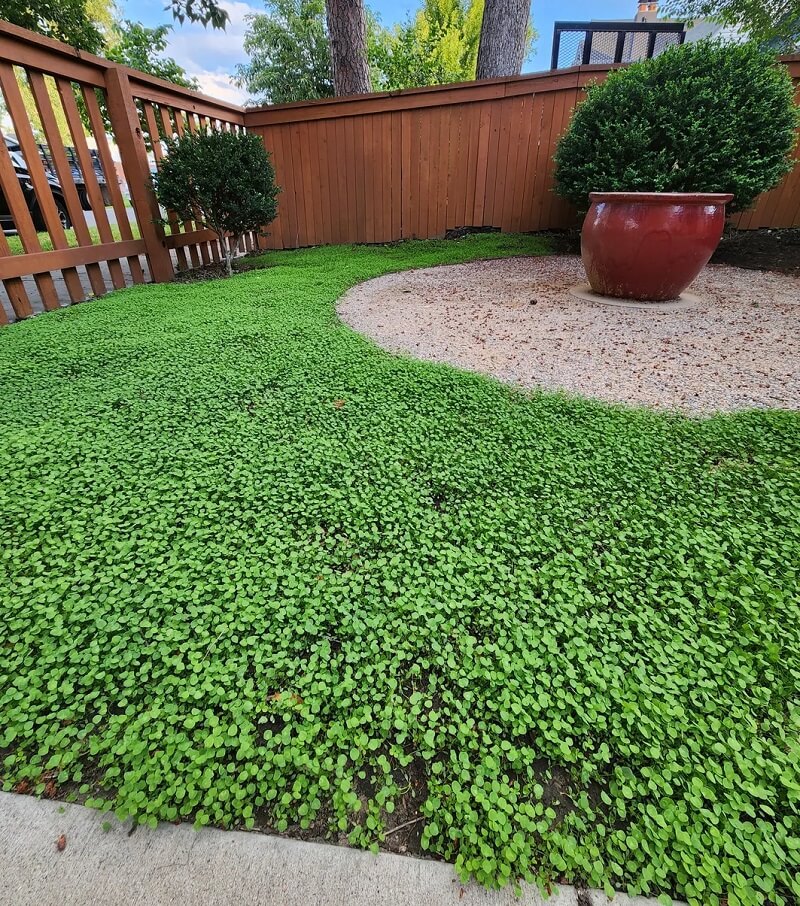This Redditor's brand-new lawn, which they shared with the public via a post in r/landscaping, would make any leprechaun smile.
The post's accompanying photo shows an electric green yard full of quaint little clovers, known as microclovers.
"We were seeking a grass alternative after ripping out irrigation and letting our lawn die," the Redditor wrote. "So far we're thrilled with the results."

According to Treehugger, clover is drought-resistant and requires much less water than grass. Additionally, it attracts pollinating insects such as bees.
The University of Maryland Extension notes that this kind of clover is native to Europe, but plants native to our own region are typically better adapted to local conditions and are better for our wildlife, according to the Xerces Society.
When considering rewilding your own yard — which has a litany of personal and environmental benefits, including conserving water and reducing time on lawn maintenance — consider the plants that are indigenous to your region. Eco-friendly, low-maintenance artificial lawn replacement possibilities include buffalo grass, which is native to North America, and xeriscaping.
However, microclover is still getting a lot of attention, and if a full yard makeover isn't in the cards, it can be part of a more planet-friendly lawn replacement compared to traditional turf.
Other Redditors took to the comments section of the post to debate the pros and cons of planting it, as well as share their own experiences with clover.
"I wanted a microclover lawn but read that it's hard to keep it going as you would need to reseed so we went with a mix of microclover and native grass. Seems to be working OK," one person shared.
"I can't believe how many bees there are in mine," one person said. "I'm having quite the bloom right now after a few good rains last week. Bees are everywhere. I'm leaving parts of it flowering to keep them well fed."
"I let my whole back yard turn to clover a few years ago," another commented. "Watching the grass dance around from all the different pollinators was [really a] treat to see. Never got stung once."
Join our free newsletter for easy tips to save more, waste less, and help yourself while helping the planet.









